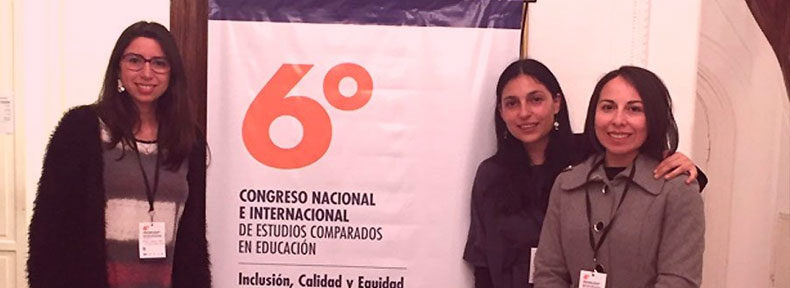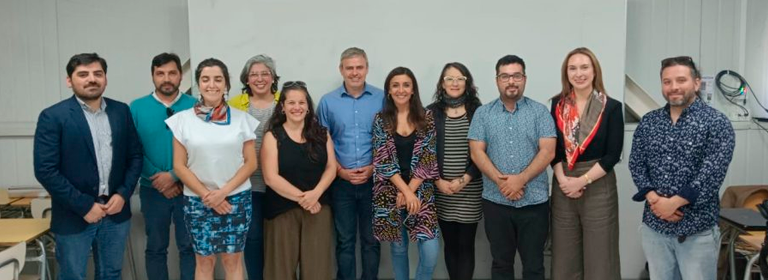Sociologist Alma Calderón assumed the coordination of an initiative aimed at reducing inequalities and discrimination against women in the region.
 Sociologist Alma Calderón sees the new gender observatory to be set up by the Universidad Católica del Maule (UCM) in Talca as a “disruptive” instance, with the capacity to break the established rules.
Sociologist Alma Calderón sees the new gender observatory to be set up by the Universidad Católica del Maule (UCM) in Talca as a “disruptive” instance, with the capacity to break the established rules.
Calderón, who holds a doctorate in Gender Studies from the University of Barcelona, arrived at the campus as coordinator of the project that will open the so-called “ADA” center.
“It will be disruptive in a good sense, because it will create tension in spaces inside and outside the institution, where the view is usually androcentric and rigid, with the aim of developing innovative proposals and methodologies to address reality,” she said.
“In addition to the challenge of making gaps, inequalities and opportunities visible,” she added, ”the observatory will have the challenge of carrying out epistemic surveillance, as a space that eventually validates how to generate proposals and scientific knowledge with a gender approach.
Last October, the university was awarded resources from the Agency for Research and Development (ANID) to set up an observatory to characterize the reality of women in research and innovation. The center will be named after the first female computer programmer, Ada Byron.
“One of the initial phases will be to make the work of women researchers, scientists, thinkers and philosophers visible and then ask why they have not been made visible, why these historical shadows exist in the universe of scientific knowledge,” added the professional.
Encouraging vocation
Motivating more women to enter the world of Science, Technology, Engineering and Mathematics (STEM) has become a priority in Chile, where various public policies aim to reduce gender gaps in access to higher education. For this reason, the increase in the number of women selected for careers in these fields, which grew from 30 to 32 percent in one year, was received as encouraging news.
“The idea is for the observatory to be a reference in the region and to manage to articulate agents and educational institutions, integrating them into the cultural change that is already underway,” said Calderón, who recently obtained her doctorate degree with ‘Cum Laude’ distinction.
“I focused my research on women and dissidence in the culture and music industry. It was not a musical aesthetic analysis, but rather I approached the social dimension of how young women in particular promote new forms of organization, mediated by technologies. Music plays a more identitary role, a sense of belonging, and gives a positioning and an enunciation in the face of cultural reality.
Although my object of study was focused on the area of culture, my theoretical framework helps to explain phenomena that are framed in the intersection between music, science and technologies with a gender approach,” she said.













